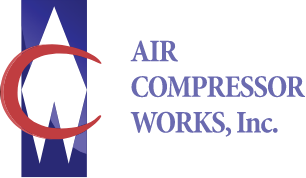Air Compressor Works
Post
Four Questions To Ask Before Buying A Compressor
June 18, 2019

As with any major purchases, it pays to understand what your true needs are and what you expect for your money. With over 40 years of experience designing compressed air systems for a wide range of applications, these are the critical areas to think about before you sign on the dotted line. Keep this checklist handy when you start thinking about buying a new compressor.
1. What are you using the compressed air for?
The type of work you do is one of the most important factors in determining compressor size.
- Do you intend to use air 10 to 20 hours a day, five days a week, or only occasionally?
- Are your demands for compressed air consistent or do they vary widely?
- Purchase a compressor designed for a duty-cycle which equals or exceeds specified requirements.
2. Where will the compressor be located?
As they say location, location, location.
- Outdoor applications require special protection against rain and heat.
- It is critical to have adequate ventilation for successful operation since most reciprocating compressors are air cooled. Don’t put the compressor in a closet, for example.
- Place the compressor at least three feet from the wall to ensure proper air flow. Be sure the installation site is sufficiently ventilated to handle the heat generated by the compressor during operation.
- Do not put in direct sunlight – if you do, provide shade for the equipment.
- Be aware of noise carrying into the office/general use/neighbors
3. How much pressure (PSI) do you require?
Match the pressure requirements to the majority of the applications in your plant by lowering the pressure of the existing system until problems occur.
- If you have more than 35 PSI requirement for a unique operation consider re-engineering piping or the equipment to allow for operation at the lower pressure
- Check the manufacturer’s specifications and pressure requirements for all your equipment. Do not overpressure the system. This costs more in maintenance and power.
- The pressure also determines whether the unit should be a single-stage (Max 125 PSI) or two-stage (Max 175 PSI) compressor.
4. How much airflow (CFM) do you require?
CFM (cubic feet per minute) is a measure of airflow the compressor can create.
- Be aware that CFM rated at ideal conditions is not the volume that is actually produced, especially during our summer days – you can lose as much as 20% capacity on a 90° F 70% Rh day.
- If possible, take a load cycle on your existing compressor for all shifts. Better yet, install a flowmeter for a nominal cost which can save you thousands in the long run.
- Once you determine what your flow requirements are you can match that to what you consider future growth.
- Oversized compressors not only cost capital but will use more power which is actually more expensive in the long run.
Is compressor selection magic? No, not really. It’s an accumulation of the correct information for existing and future needs. Remember a new compressor is not a solution for a poor distribution system or inappropriate air usage. If you are part of the decision process on buying a new compressor, remember to keep these key questions in mind during the selection process.
There are many more questions to ask before you make a purchase decision. For more help with those questions and anything else, call ACW at (561) 844-4559
Contact Us
Contact Us
Palm beach:
1956 W 9th St
Riviera Beach, FL 33404
Monday – Friday 7:30 AM - 4:30 PM
Map and Directions
Miami:
7292 NW 25th St
Doral, FL 33122
Monday – Friday 7:30 AM - 4:30 PM
Map and Directions
Phone Number:
Areas We Serve
- Miami
- Fort Lauderdale
- Hollywood
- Boca Raton
- Stuart
- Vero Beach
- Delray Beach
- West Palm Beach
- Homestead
- Key West
- Fort Pierce





